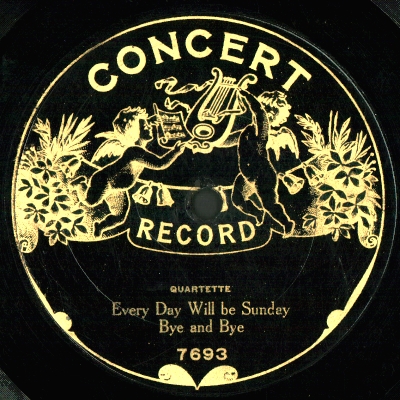

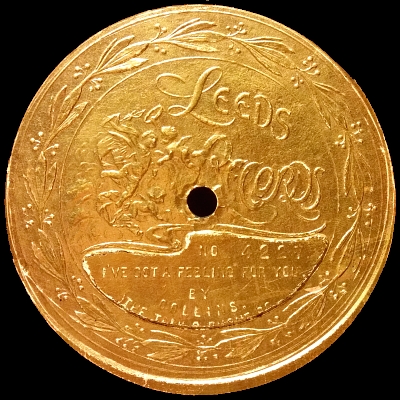 |
| I've Got A Feeling For You |
| Arthur Collins |
| Leeds 4227 |
| Matrix# ? |
| listed 1904 |
| New York, New York |
| Note: Poor pressing/surface. Abrupt ending. |
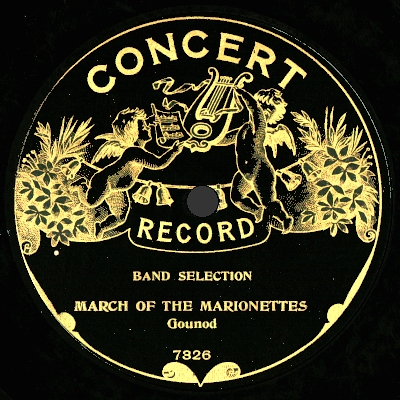 |
| March of the Marionettes |
| Leeds Band |
| Concert (Leeds & Catlin) 7826 |
| Matrix# 5999 (4326; 6134) |
| 1904-1906 |
| New York, New York |
| Note: Played at 76 RPM. Very worn, especially at beginning. |
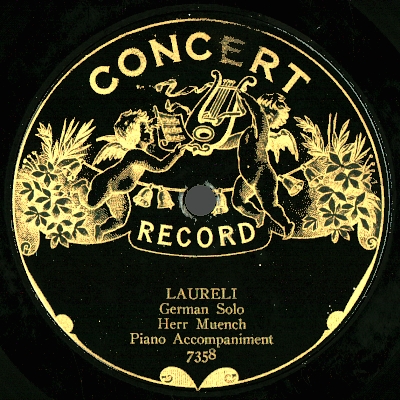 |
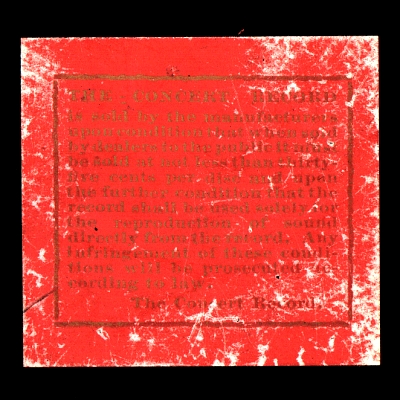 |
| Laureli (Die Lorelei) | (Blank) |
| Herr Muench | |
| Concert (Leeds & Catlin) 7358 | |
| Matrix# 6112 (4358; 85341) | |
| 1904-1906 | |
| New York, New York | |
| Note: Played at 80 RPM. Worn. |